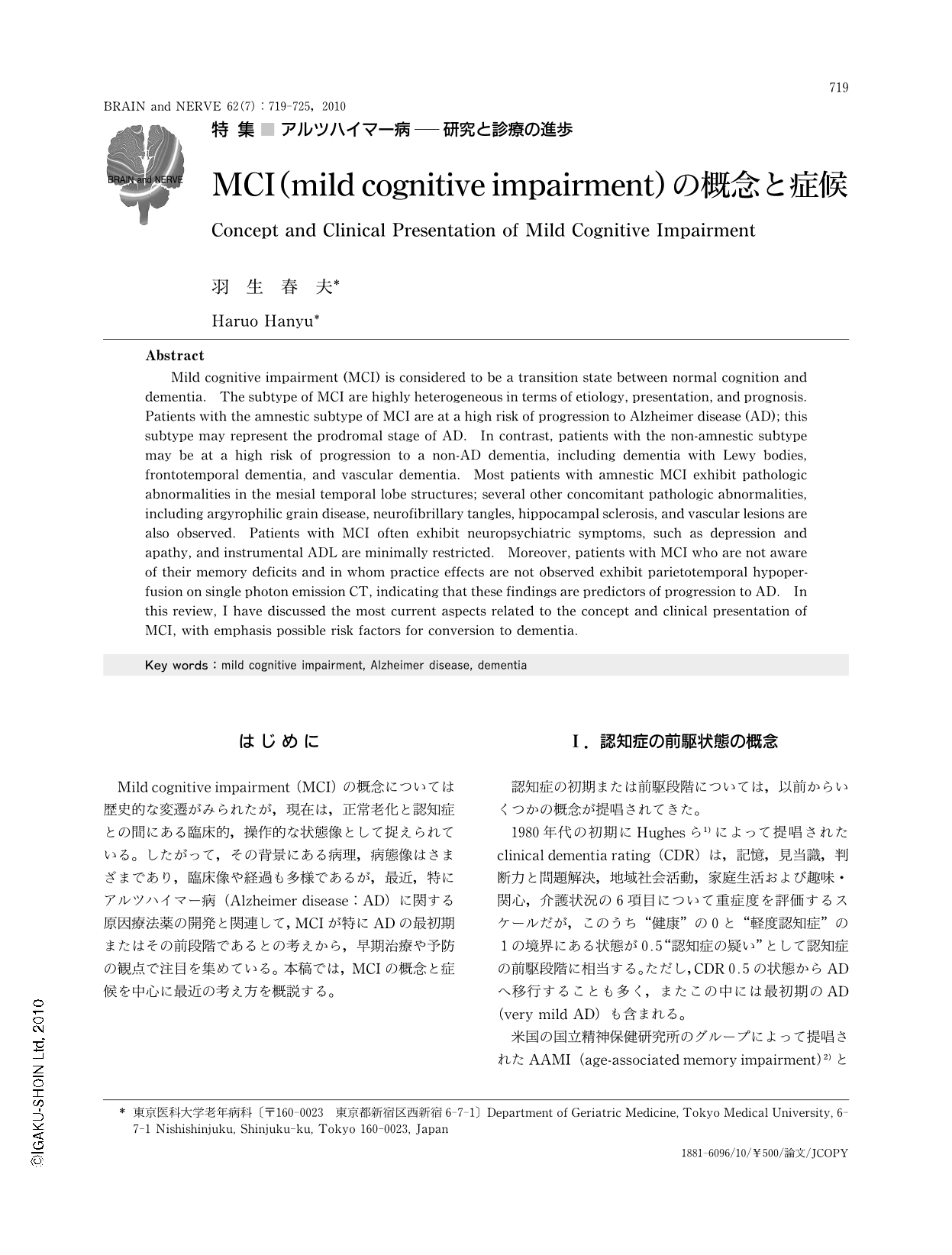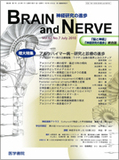Japanese
English
- 有料閲覧
- Abstract 文献概要
- 1ページ目 Look Inside
- 参考文献 Reference
はじめに
Mild cognitive impairment(MCI)の概念については歴史的な変遷がみられたが,現在は,正常老化と認知症との間にある臨床的,操作的な状態像として捉えられている。したがって,その背景にある病理,病態像はさまざまであり,臨床像や経過も多様であるが,最近,特にアルツハイマー病(Alzheimer disease:AD)に関する原因療法薬の開発と関連して,MCIが特にADの最初期またはその前段階であるとの考えから,早期治療や予防の観点で注目を集めている。本稿では,MCIの概念と症候を中心に最近の考え方を概説する。
Abstract
Mild cognitive impairment (MCI) is considered to be a transition state between normal cognition and dementia. The subtype of MCI are highly heterogeneous in terms of etiology,presentation,and prognosis. Patients with the amnestic subtype of MCI are at a high risk of progression to Alzheimer disease (AD); this subtype may represent the prodromal stage of AD. In contrast,patients with the non-amnestic subtype may be at a high risk of progression to a non-AD dementia,including dementia with Lewy bodies,frontotemporal dementia,and vascular dementia. Most patients with amnestic MCI exhibit pathologic abnormalities in the mesial temporal lobe structures; several other concomitant pathologic abnormalities,including argyrophilic grain disease,neurofibrillary tangles,hippocampal sclerosis,and vascular lesions are also observed. Patients with MCI often exhibit neuropsychiatric symptoms,such as depression and apathy,and instrumental ADL are minimally restricted. Moreover,patients with MCI who are not aware of their memory deficits and in whom practice effects are not observed exhibit parietotemporal hypoperfusion on single photon emission CT,indicating that these findings are predictors of progression to AD. In this review,I have discussed the most current aspects related to the concept and clinical presentation of MCI,with emphasis possible risk factors for conversion to dementia.

Copyright © 2010, Igaku-Shoin Ltd. All rights reserved.


